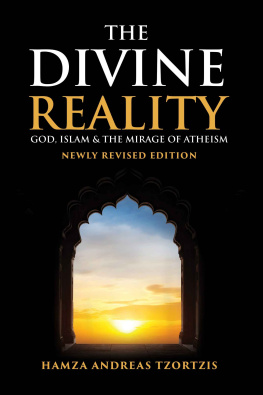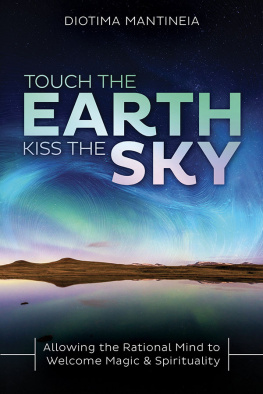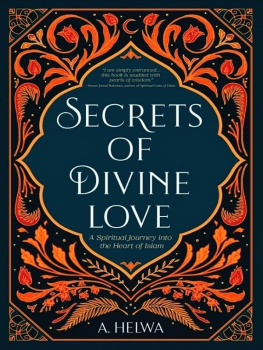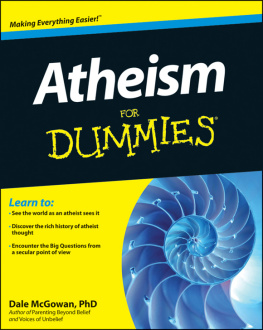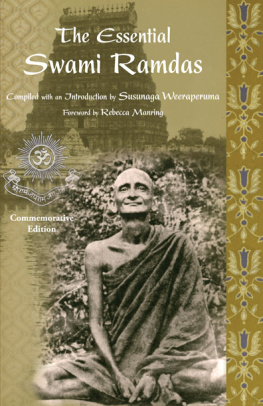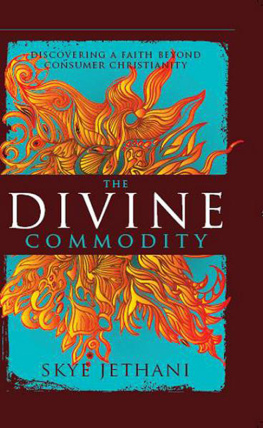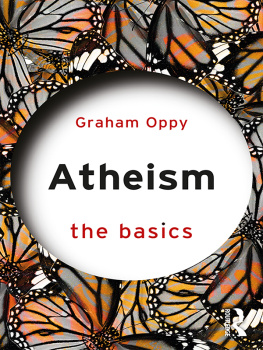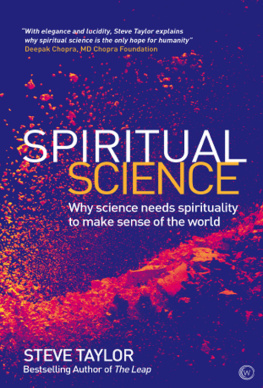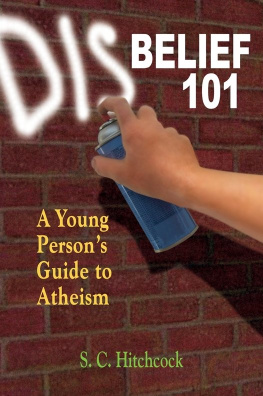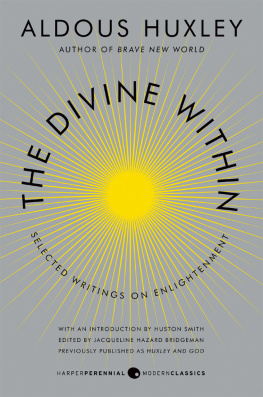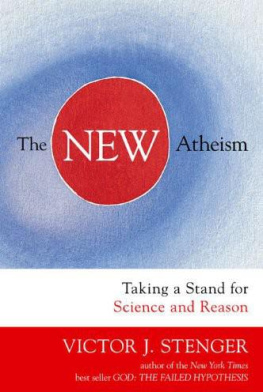The Divine Reality
God, Islam & The Mirage of Atheism
Newly Revised Edition
By Hamza Andreas Tzortzis
Lion Rock Publishing
Copyright 2016, 2018, 2019 Hamza Andreas Tzortzis
All rights reserved. No part of this book may be reproduced in any form or by any electronic or mechanical means including photocopying, recording and information storage and retrieval systemsexcept in the case of brief quotations embedded in critical articles or reviewswithout the permission in writing from the author.
Lion Rock Publishing
Visit the authors website at www.hamzatzortzis.com
Book Design: Ramit Kumar
ISBN: 978-1-9162384-1-1
First Edition, Newly Revised Edition 2019
In the name of God, the merciful, the giver of mercy.
All praise and gratitude is due to God, the Lord of everything that exists. May Gods peace and blessings be upon His final Prophet and Messenger, Muhammad .
For my family.
Their love, patience, and enduring compassion deserve eternal gratitude.
Preliminary notes
In the Islamic tradition when the Prophet Muhammad is mentioned by name or title the honorific phrase is used. It is a sign of love and respect. The phrase denotes May Gods peace and blessings be upon him. This phrase has been used throughout this book.
The word God has been used throughout this book. However, in the Islamic tradition the name of God is Allah. Arabic linguists suggest that the name Allah comes from the word Al-Ilah , which means The-Deity. The name Allah has no plural and is genderless.
Acknowledgements
Undoubtedly this book would not have been possible without God. I praise and thank Him. Once you finish reading this book you will realise that everything depends on God and He alone is worthy of perfect praise and gratitude.
The Prophet Muhammad taught that the person who has not thanked people has not thanked God. In this light, there are a number of people to whom I owe thanks for helping and encouraging me to write this book.
First among them are my family. I cannot ever forget the love, patience, support, encouragement and sacrifices of my wife and children. My neglect and isolation was endured and overlooked by the people I love. The fact that God gave me such a family is something that deserves eternal gratitude.
I would like to show my appreciation to my brother Spyros Tzortzis. He was an early intellectual inspiration in my life. We shared the same bedroom for over two decades. His ability to think outside of the box and explore new ideas planted intellectual seeds in my mind, the fruit of which is this book. I would like to thank my sister Haris Tzortzis. She has always supported me and never defined me by my faults, always by my strengths. My mother Androula Tzortzis is one of the most loving people that I know. Her undying love, energy and support have shaped who I am. My father Petros Tzortzis has always been my hero. His patience, tolerance, love, humility and wisdom have inspired me. I can never repay my parents. Anything I say cannot truly express the gratitude that is due to them. I pray that God guides and protects my family, and that He grants them long, healthy lives full of joy, love and piety. I pray that He continues to unite us in love.
I want to thank my friend Imran Hussein. Imran reviewed the book and provided significant input. His contribution to Chapter 3 was extensive. I am also extremely grateful to my friend Subboor Ahmad, who provided important contributions and moral support.
I want to express my deepest gratitude to Abu Hurayra. He is one of the smartest people I have had contact with. Although we have never met, due to our similar interests we have exchanged ideas. He reviewed the book at its early stage and his input was beyond significant. Without his incisive criticism and contribution this book would not have been possible.
I would like to thank the author and academic Dr. Safaruk Chowdhury. Our friendship has inspired me to pursue further studies in Islamic thought and philosophy. His review of the book and scholarly contribution was extremely helpful.
I would like to thank Asif Uddin, who spent hours researching various Islamic classical texts. His input and corrections helped shaped the character of the book.
I am ever grateful to my friend Adnan Rashid. His review of the book and his contribution to Chapter 14 was extensive.
I would also like to express my gratitude to Dr. Atif Imtiaz and Sharif Randhawa for their important suggestions and advice.
I would like to thank Umm-Talha bint Abi-Bilal who did a last minute review of the entire manuscript.
I am grateful to Ghazi Mannai, Fahad Tasleem, Dr. Mohamed Ghilan, Anthony Green, Salahuddin Patel, Joni Molla, Esa Khan, Abdullah Mekki, Moseen Khalid, Zeenat Bibi, Abu Zakariya and Umm Zakariya for their noteworthy support and contributions.
Finally, I would like to thank John Paine for his editorial work and iERA for their support which helped make this book become a reality.
There are many more people whom I should show my appreciation and gratitude to. However, anyone that has been left out, know that your reward is with God, and what is from Him cannot be compared to anything in this world.
Contents
Preface
My Journey
What is the point of writing a book about God, Islam and atheism? Philosophers, thinkers and academics from various religious backgrounds have already written books on similar topics, so why reinvent the wheel? To explain this, let me elaborate a little on the journey that I have taken so far in my life.
I was born in London to Greek parents. Both of them came to the UK in the seventies for different reasons. My father mainly wanted to escape life in Athens. My mother did not have much of a choice; she was a refugee driven out by the Turkish invasion of Cyprus in 1974. My parents suffered many hardships, but with love, patience and determination they have become now two of the happiest, most loving, compassionate and tolerant people I know. I am eternally grateful to have them in my life.
Despite all their setbacks, what concerned my father the most was solving his version of what people call an existential crisis. He was in search of answers to lifes key questions. His journey led him to acquire an array of books. At home, I had access to a wide range of literature, from The Power of Positive Thinking to The Science of the Mind . My father was always immersed in his books and constantly shared his ideas with us. I am the middle of his three children, and none of us at the time had mature enough minds to comprehensively grasp what he was saying.
Being brought up in this background, I picked up my fathers existential anguish, and I began to ask questions about the basis of my own existence. I still remember how, at around the age of eleven, I would go into the bath and sit in the tub for a while, crying. I felt so lonely. What occurred to me was that I was the only one conscious of my existence ( see Chapter 7 ). Only I knew what it was like to be me, whether I was alone in the bath or playing with friends in the park. This created a sense of doubt about the existence of other peoples conscious lives. Were they really conscious? Did they exist in a real sense? What were they feeling? What were their conscious experiences when I was not there to witness them?
Later in life, I learnt that this was a form of solipsism, which is the view that you can only be certain that your mind exists. Nevertheless, it was a profoundly lonely experience, which I believe was the emotional driving force to find answers to very important questions in my life. This experience instilled within me that the concept of truth is very important. In my search for truth, I used to engage with my friends and ask them questions about their beliefs. I was so fortunate to have connections with people from myriad ethnicities and cultures. This was one of the blessings of being brought up in the London borough of Hackney.
Next page
